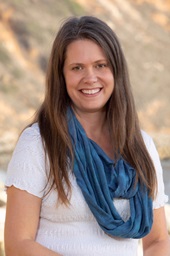Since 1972, The United Methodist Church’s Social Principles have stated that the practice of homosexuality is “incompatible with Christian teaching.”
The Book of Discipline, the church lawbook, was amended in 1984 to use that same phrase in a passage that prohibits “self–avowed practicing homosexuals” from serving as clergy.
Two annual conferences now are asking the Judicial Council, the denomination’s top court, to rule on whether the “incompatible” language violates the denomination’s constitution.
The Denmark Conference, meeting in Copenhagen on May 13, approved a motion by the Rev. Jørgen Thaarup seeking a declaratory judgment by the court.
The motion argues that “Christian teaching” is synonymous with “Christian doctrine” and that the church constitution prohibits General Conference, the church’s law-making body, from changing or adding to church doctrine as elaborated in church law.
“The question of homosexuality is not addressed in the doctrinal standards of The United Methodist Church,” Thaarup’s motion says. “Therefore, the question of homosexuality is not a question of doctrinal standards or standards of faith.”
On June 17, the California-Pacific Conference approved a shorter but similar motion from the Rev. James Dwyer, a retired elder who attends Claremont (California) United Methodist Church. Dwyer said he had learned of Thaarup’s effort and wanted the California-Pacific Conference to know about it too.
"It's a widely expressed opinion in the Western Jurisdiction that the central conferences and certain parts of the U.S. church are preventing us from moving forward in the inclusion of gays and lesbians in ministry,” Dwyer said by phone.
“For me it was important for the Cal-Pac Conference to know that a central conference annual conference, in Denmark, was also speaking in a sense that our conference would agree with.”
Dwyer added that he introduced the resolution to show solidarity with the Denmark Conference. He said the measure passed “without much ado.”
At the 1972 General Conference, delegate Don Hand made a floor motion to add the “incompatible with Christian teaching” language, in the midst of discussion over a church statement about human sexuality.
Many years later, in an essay recalling the experience, Hand noted that he accepted a friendly amendment to change “Christian doctrine” to “Christian teaching.”
Efforts to remove the language have failed consistently at General Conference, and there have been various acts of defiance, including the Western Jurisdiction’s election of Bishop Karen Oliveto, a lesbian married to another woman, as bishop last summer.
Lonnie Brooks, secretary of the Alaska Conference leadership team and a writer of briefs in various Judicial Council cases, said he favors eliminating the “incompatible” language but doesn’t think the Denmark and California-Pacific effort will succeed.
“It’s not a judicial issue,” he said. “It’s a legislative issue.”
He added that, in his view, the language is not doctrinal in the sense intended by the constitution’s Restrictive Rules, which limit what General Conference can do.
Thaarup wrote a paper for an event called “Unity of the Church and Human Sexuality: Toward a Faithful United Methodist Witness,” a gathering of scholars at Candler School of Theology last March.
The paper elaborates the theory behind his motion and argues that the denomination can stay together despite clear differences over homosexuality.
The Judicial Council next meets Oct. 24-27 in Los Angeles.
Hodges, a United Methodist News Service writer, lives in Dallas. Contact him at (615) 742-5470 or [email protected]. To read more United Methodist news, subscribe to the free Daily or Weekly Digests.
Like what you're reading? Support the ministry of UM News! Your support ensures the latest denominational news, dynamic stories and informative articles will continue to connect our global community. Make a tax-deductible donation at ResourceUMC.org/GiveUMCom.




